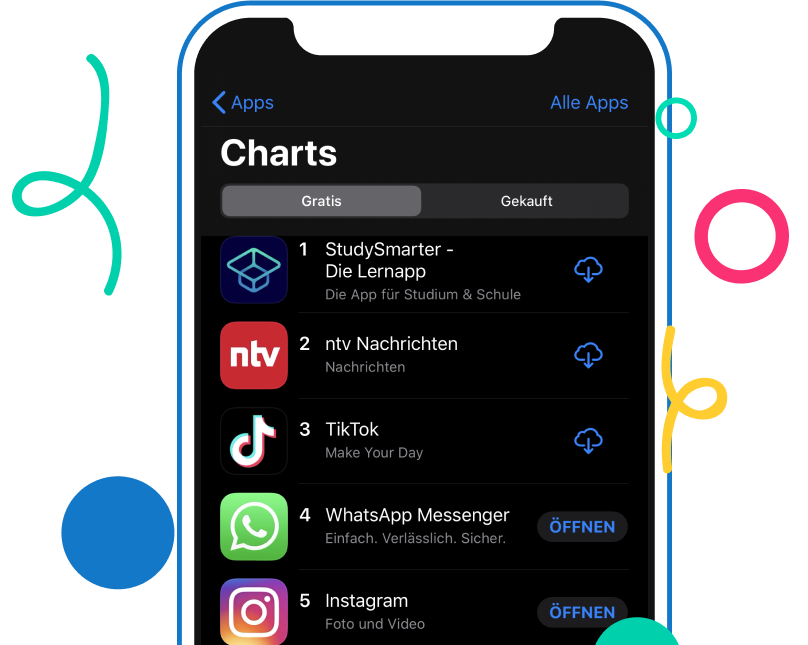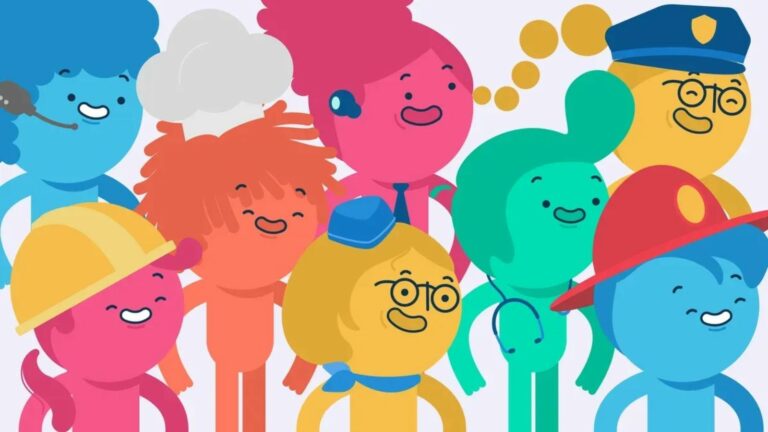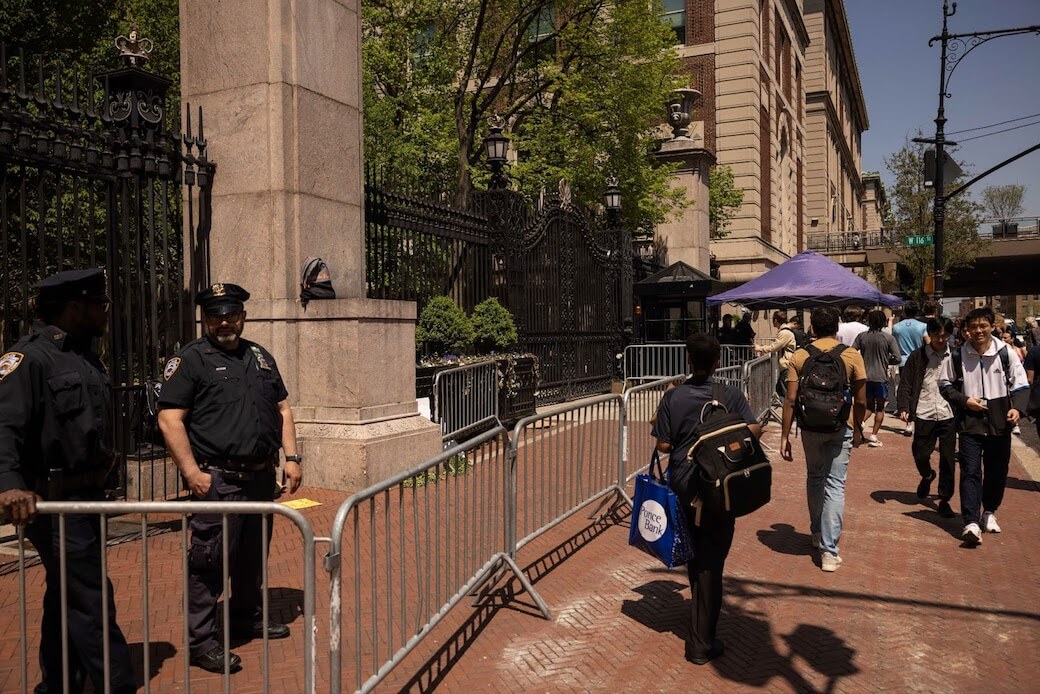Should Students Have Part-Time Jobs? Essay
Introduction.
The supreme desire of every parent to take their children to school is for them to get the best education and excel at their studies. Despite this fact, there comes a point in time when the student needs to supplement the income from their parents or rather source funds to even cater for their education (Sloman, 652).
As a result, most students end up engaging in part-time jobs. It can be due to the necessity or desire to have some extra money to spend. The decision to engage in part-time jobs is entirely the student’s choice. Some get support from their parents, tutors, and friends, while others don’t.
But should students have part-time jobs? This essay tries to answer this question.
Before any decision to engage in part-time jobs is reached, three things have to be critically considered. These are the students themselves, their financial situation, and, finally, the type of work. The listed factors will allow a person to make decisions that they will not live to regret.
Therefore, this part-time job essay is an in-depth analysis of the advantages of students having jobs and a little discussion on the disadvantages.

Advantages of Part-Time Jobs for Students
Part-time jobs are of great essentiality since students are able to earn while at the same time studying. Most part-time jobs require that one works for about three to four hours a day, something that is manageable by almost every student, given the fact that lessons don’t take the entire day. Some of the benefits associated with part-time jobs for students include the following;
Relief of financial burden
Students who engage in part-time jobs get paid for the services offered; hence the earnings obtained can be used to partly relieve the students’ financial burden they could have.
This is because the cost of education has in the recent past sky-rated, making students from poor families not able to afford yet the banking systems have also failed to loan such students; therefore, engaging in part-time jobs makes such students meet their education expenses (Somoski 1). In addition, part-time jobs give students pocket money that they can spend on their own without nagging their parents with money.
Promotion of education
Students who undertake part-time jobs are able to upgrade their studies, making them understand whatever they learn in school even better. For instance, an accounting student who gets a part-time job in an accounting firm will be able to experience the theory learned in school practically hence having a better understanding of the course. The same applies to medicine, engineering, law, and biology students, among others (Pickett 1).
Accumulation of work experience
Engaging in part-time jobs enables the students to gain experience in their field of work hence boosting their resumes. This is important when it comes to job hunting after completion of studies.
Research has shown that students that have undertaken part-time jobs and gained relevant experience have the upper hand when it comes to getting jobs, unlike those that are just fresh from school. On the other hand, working part-time for recognized organizations increases one’s chances of landing a better job.
Time Management Skills
Having a part-time job helps students to acquire time management skills in the sense that they treasure every time they get and use it efficiently. This happens because their study time is now preoccupied with the job, thus having to restructure their schedule to fit in the study time, work time, leisure time, etc.
Learn the value of money
Most parents have complained that their children who are students do not know the value of money until they get jobs. Therefore, students who take part in part-time jobs while in school are in a position to understand the value of money, thus using it well in the future (Pickett 1). For instance, they are now able to refrain from impulse buying and resulting in smart shopping hence making their money last longer than before. This, as a result, makes them responsible adults even in the future.
Other benefits associated with part-time jobs are that the students get new ideas while in the workplace (Somoski 1). This happens mostly for challenging courses that need great minds, such as web design, whereby the students learn new technologies as soon as they are generated. Last but not least is the improvement in communication skills since the student interacts with different people at the workplace.
Disadvantages of Part-Time Jobs for Students
As mentioned above, the decision to engage in part-time jobs is wholly dependent on the student. This is because there are disadvantages that come in handy with a student engaging in part-time jobs.
Among them is the effect it has on students’ performance, given the less time allocated for study (Anti Essays 1). Other students may be overwhelmed by their greed for money and end up forgoing their studies to indulge in full-time jobs hence affecting their education.
In a nutshell, it can be concluded that the pros of part-time jobs for students outweigh the cons. From the discussion above, the benefits that a student gets on deciding to engage in part-time jobs are endless. The good thing is that the disadvantages attached to part-time jobs for students are manageable depending on the mind and focus of the students in their education and life.
Works Cited
Anti Essays. Benefits of Part-Time Jobs . 2011. Web.
Pickett, Theresa. What are the Benefits of Part-Time Jobs for Students? 1999-2011. Web.
Sloman, John. Economics . 2004- Penguin.
Somoski, Nick. Should students work part-time during the school year ? 2010-2011. Web.
- Chicago (A-D)
- Chicago (N-B)
IvyPanda. (2023, October 29). Should Students Have Part-Time Jobs? Essay. https://ivypanda.com/essays/benefit-of-students-who-have-part-time-jobs/
"Should Students Have Part-Time Jobs? Essay." IvyPanda , 29 Oct. 2023, ivypanda.com/essays/benefit-of-students-who-have-part-time-jobs/.
IvyPanda . (2023) 'Should Students Have Part-Time Jobs? Essay'. 29 October.
IvyPanda . 2023. "Should Students Have Part-Time Jobs? Essay." October 29, 2023. https://ivypanda.com/essays/benefit-of-students-who-have-part-time-jobs/.
1. IvyPanda . "Should Students Have Part-Time Jobs? Essay." October 29, 2023. https://ivypanda.com/essays/benefit-of-students-who-have-part-time-jobs/.
Bibliography
IvyPanda . "Should Students Have Part-Time Jobs? Essay." October 29, 2023. https://ivypanda.com/essays/benefit-of-students-who-have-part-time-jobs/.
- Part-Time Studies Impact on Employee Performance
- On-Campus Food Services: Part-Time and Full-Time Students
- United Parcel Service Part-Time Workers' Strike
- Full-Time Versus Part-Time Workers at Marriott International Hong Kong
- The Impalement of Driving: Rising Fuels Costs for Teens
- Amitai Etzioni: Youth Issues in “Working at McDonald’s”
- Unemployment Issue in the United States
- Lawfty Hotel Accounts and Taxation
- Labor Market Changes and in Australia since the Mid 1980s
- Earnings Differentials for Women by Full-Time or Part-Time Work
- All You Need to Know about Long-Term Care Insurance
- Improving Economic Opportunity of the US
- China’s Bad Growth Bet by Nouriel Roubini
- Economics of Integrity and Profit Maximizing
- Rapidly Developing Macroeconomics in Chile
- Share full article
Advertisement
Supported by
Student Opinion
Should All High School Students Have Part-Time Jobs?
What can teenagers learn from working?

By Shannon Doyne
Have you ever had a part-time job? If so, where did you work and what did you do? If not, do you want to have this experience by the time you graduate from high school? Why or why not?
What do you think teenagers can learn from working?
In the Opinion essay “ The Best Extracurricular May Be an After-School Job ,” Pamela Paul, a columnist who worked multiple jobs in high school during the late 1980s, presents an argument for why students today should work:
Lots of American teenagers need to work after school to help support their families. But there’s a case to be made that those who don’t need to work should get a job anyway. Conditions couldn’t be more optimal. Unemployment, close to a 50-year low , has made the kinds of jobs well suited to kids — no prior experience, minimum wage, part-time — more widely available. Yet fewer teenagers work nowadays than a generation ago. The share of teenagers in the work force has risen from a low of roughly a quarter in 2010 to about a third of older teenagers holding down a job of one kind or another since the pandemic. But when I was in high school in the late 1980s, around half of 16- to 19-year-olds held jobs. Gen X parents who grew up working after-school shifts at the local drugstore often lament the fact that their own children haven’t always had the same opportunities. Many instead favor an array of extracurricular activities that burnish their college applications, like student government and peer tutoring. This may be a mistake even for those parents and kids more concerned about college admissions than about what happens after that. Consider that having an afternoon job cultivates skills like time management and instills a sense of independence and personal responsibility — attributes that many college administrators say some students today lack . But after-school jobs teach more concrete lessons as well. Personally, I learned more from working outside school — starting with three afternoons a week when I was 14 and ending with three jobs juggled, seven days a week, my senior year of high school — than I did in the classroom.
Students, read the entire essay, and then tell us:
Are you convinced by the argument that teenagers should get an after-school job, whether they need one or not? What do you think are the author’s most persuasive points? Is there anything you think she overlooked — either in support of or against teenagers working?
Ms. Paul lists what she sees as 10 valuable things she learned from the part-time jobs she held as a teenager. Which do you think are the most important? If you have had a job, what would you put on your own list of lessons from working?
Would you have time for a part-time job if you needed or wanted one? Would it be worth giving up extracurricular activities, studying time or your free time to get a job instead? Why or why not?
Based on what you know about college admissions, do you think admissions committees value work experience enough? Do you think they should value it more than they do? Would you be more likely to get a job if they did?
Ms. Paul says that she learned more at work than she did in the classroom. Have you ever felt that way about an experience you had outside of school? What did you learn about yourself, others or life in general?
Students 13 and older in the United States and Britain, and 16 and older elsewhere, are invited to comment. All comments are moderated by the Learning Network staff, but please keep in mind that once your comment is accepted, it will be made public.
Find more Student Opinion questions here. Teachers, check out this guide to learn how you can incorporate them into your classrooms.
Find Study Materials for
- Business Studies
- Combined Science
- Computer Science
- Engineering
- English Literature
- Environmental Science
- Human Geography
- Macroeconomics
- Microeconomics
- Social Studies
- Browse all subjects
- Read our Magazine
Create Study Materials
Part-time jobs for students: make a killing without killing yourself.
Who wouldn’t want a bit of extra money to pay for hobbies and an occasional trip out of town? But how do you afford that with all the study costs you have? Let me answer that question in a few words: part-time jobs for students. No matter what you’re majoring in or how far you are in your studies, we’re covering some of the most popular part-time jobs with flexible hours for students – be they online or in person. Let’s get the ball rolling!

Part-Time Jobs for Students
So, you’re a student – high school or university, it doesn’t make a difference – and you’re already roped into the new and dynamic life of lectures, responsibilities, and life lessons. One thing is missing, though – some cash! This will be the case for as long as you study – it’s just the will of some divine force that students are poor. However, you can mitigate this great life’s truth by getting a part-time job.
Having a part-time job as a student is incredibly beneficial to your future career . Not only will you gain work experience, but you’ll also have insight into what truly makes you happy – be that helping people, devising social-media strategies, or working in a firm structure. Additionally, you’ll feel more confident and learn a set of skills crucial to success in your studies and life: time management, discipline, organisation, and people smarts.
It’s never too early to get a part-time job, and the great thing is that you don’t need too much knowledge or experience for many positions (after all, you’re still a student, and you’re on your way to experience). Let’s check out some of the most popular options for student work.
Join over 90% of students getting better grades!
That’s a pretty good statistic. Download our free all-in-one learning app and start your most successful learning journey yet. Let’s do it!
Part-Time Jobs for Students – High-Paying or Not, Here They Come!
A short preamble to the most sought-after student jobs, which seem to be hiring all the time: Your concept of money as a high-school or a university student may vastly differ. Even the several years between high school and uni will change your perspective on how much you should earn. However, your needs, too, will be proportional to your academic journey. As a high schooler, you’re probably still living with your parents, which means no rent or utility bills, and most likely, the fridge still magically fills itself. On the other hand, at university, once you’ve moved out of your parent’s place , you’ll face an increase in expenses. Dorm life or flat-sharing is a good way to save cash, as is prudent grocery shopping.
The point is – don’t set your expectations too high. If you’ve already become a master software developer, sure, you can expect a good payout. Otherwise, go for those jobs that speak to you and don’t leave you burnt out . After all, you still have your studies to worry about; no need to be exhausted before you’ve started.
Part-Time Jobs for High-School Students
Let’s start at the beginning, as those witty elders would say. Getting a job in high school is quite a reasonable idea: after all, you’re almost of age, and your mental and psychological development have reached the tipping point between a kid and a young adult (you’re probably still grappling with some matters of idealism, resulting in unsolicited door slams and the overwhelming sense of being alone in the world – it sucks, but it passes). What I’m trying, in my long-winded way, to say is that you’re perfectly capable of making your own decisions about whether you want to work or not.
Here are some of the most popular jobs for high-school students:
- Babysitter. If you like kids, don’t mind changing an occasional diaper, and can’t wait to do fun things with them (that their parents would most likely disapprove of, e.g. eating tons of ice cream), you can find some babysitting gigs around you. It’s a relatively dynamic way to earn some money and it would not disrupt your school schedule.
- Newspaper delivery. Getting up a bit earlier and incorporating a bicycle spin around your neighbourhood into your routine would do wonders for your health, fitness, and mood. Why not make a killing while doing it by delivering newspapers along the way? If you scorn early risers, you can do this job in the evening too.
- Café server. Depending on your age and how clumsy you are, this may involve being a barista, waiting tables, or working as a receptionist in a café. All you need is the ability to smile and be polite to customers; everything else comes with practice.
- Movie theatre cashier . Alternatively, an usher. No major physical work is required – you can work at a desk office and sell tickets or guide people to their seats (which may include bringing them some drinks in the intermission and glaring menacingly at those who cannot keep their mouths shut during that heart-wrenching bit of the West Side Story ).
- Petsitting. People go on holiday and cannot always take their pets with them, but luckily for them, you’re there to jump in and attend to the animals’ needs. Feeding, making sure they have water, walking dogs, and most importantly, being surrounded by big balls of floof and cuddles?! Sign me up too!
As a high-school student, you may also be interested in working as a cashier in a supermarket, a hotel receptionist, or an ice-cream scooper. Whatever you decide to do, make sure the job is not too taxing and time-consuming, as you still have your education to think of.

Part-Time Jobs for College Students
As if university wasn’t difficult enough with all the papers , projects, and assigned reading, you have to think about working on top of it all? Actually, it’s not that bad to have a job as a university student – it’s a great way to finance your studies or leisure activities, boost your confidence, and gain some work experience. But what can you do?
For starters, if you’ve had a job as a high schooler, you would be perfectly fine continuing what you were doing while studying. Babysitting and petsitting are both fun in their own way, and waiting tables comes with the benefit of regular tips. However, there are more options you can consider:
- Administration. All universities and companies always look for yet another person to deal with their administration. This can involve anything from checking the mail and making coffee to archiving documents and filing financial reports. While sedentary, it’s not likely to be boring.
- Bank teller. As a bank teller, you’ll help people count and handle their money as they run errands in banks. You have to have a steady hand and good concentration to do this, but you’ll be able to transfer that well-practised focus to your studies, making them more effective.
- Bookkeeper. If you’re an Excel whiz-kid, don’t mind crunching numbers, and are okay with an occasional bad meme about you, you can work as a bookkeeper – talk about a well-paid job.
- Elder-care assistant . Life in the twenty-first century is far less community-oriented than it used to be, which often means that elderly people need more help that they cannot get from their children (work, living far away, difficult circumstances, you name it). As an elder-care assistant, you’ll step in, do some grocery shopping for people, and maybe help them clean their house or cook a simple meal . It can be very rewarding as older people always have a good story to tell.
- Social media curator. If you can’t help yourself but check your socials all the time, you may as well put that interest to good use. As a social media assistant, you’ll schedule and curate posts about your company, communicate with people, and try to generate more interest (and revenue) through online engagement.
Additionally, you can work as a house sitter, delivery driver, or retail team member (though be ready to meet your fair share of Karens – some things are inevitable in life).
Exam stress causing you sleepless nights?
Get a good night’s rest with our free teacher-verified study sets and a smart study planner to help you manage your studies effectively.
Remote Part-Time Jobs for Students
Working as a student does not even have to take you out of your own home. Remote jobs come with their own advantages, like flexibility, time efficiency, and various tasks. If you prefer to work from the comfort of your bed (plus blankets and endless cups of tea ), here are your options:
- Online tutoring . Put your knowledge to good use, help poor unfortunate souls who need to prepare for their exams , and make a good deal of money by teaching online. There are numerous platforms through which you can apply and teach anything you like.
- Writing. Content creation, copywriting, ghostwriting – you name it! The gist is the following: you’ll be writing a series of articles or other online content. You can be paid per piecemeal or per hour, but for the most part, you’ll be flexible in how and when you work.
- Web development. If IT is your sphere of interest and excellence, you can line your pockets by working in web development. (Cheating here, but this is a two-for-one offer – alternatively, you can be an IT administrator for literally any company.)
- Data entry. I won’t lie; this can be both an extremely taxing or a completely mindless task, depending on your interest and intellectual faculties. Data entry is a good way to reduce stress, as you’ll be working in a relatively stable and predictable environment.
- Customer service/helpdesk representative. People will always have questions, complaints, or confusion – if your interpersonal skills are on fleek, you’ll have no trouble responding to their queries and quelling any doubts your company’s customers may have about their product.
As a native English speaker, you can teach English as a foreign language or work as a virtual assistant or photo/video editor. Remote work tends to be well-paid and satisfying for students, which is why I recommend it heartily.

The Great Thing About Part-Timing? Flexible Hours
To recap: having a part-time job while still in school is a great way to get acquainted with the job market and work ethics, gain confidence, attain transferrable skills, and master interpersonal communication. And, yes, make some money.
When choosing a job, always listen to that nagging little voice at the back of your head because that one knows best what you actually want. There is no need to chase get-rich-quick schemes, and honestly, there is no point in hoping for an extremely high salary. Instead, opt for decently paid jobs that don’t make you wanna scream in frustration. (PS Students have a high tolerance threshold, so I don’t think there will be much screaming anyway.)
Some of the most popular jobs for students, which all come with relatively flexible hours, include:
- Babysitting or petsitting (well, housesitting too).
- Working at reception desks.
- Waiting tables.
- Tutoring online.
- Data entry.
Whichever job you choose, make the most out of it – skills and experience-wise – and remember, a job may be temporary but what you learn there stays with you forever! 😊

Did you know that StudySmarter was rated best study app worldwide!
What are some part-time jobs for high-school students?
Where can you find part-time jobs for students, what are the best part-time jobs for college students.

Guide to Choosing Part Time Jobs for Students

Working a part-time job while in college is very common. In fact, 70 percent of college students work part time while completing their degrees. Whether it’s to compensate for rising tuition costs or to supplement your student loan package, if you’re looking for work at the start of the semester, you won’t be the only one. But what kind of job is suitable for a college student to have? Here’s a simple guide to finding a part-time job while in college.
Visit College Career Center
Nearly all colleges have a student career center to help students look for employment and/or shape their career goals. Look for the resources that your institution offers first to see if anything is a good fit for you.
Pick a Place that Supports Your Studies
Some businesses love having students to fill in their part-time slots. And some places don’t understand that your main priority is your education. Make sure that they understand that your studies come first and that they can’t expect you to work the night shift the night before exams. Finding a place that can accommodate your class and study schedules is essential to making the work/study arrangement go smoothly.
On-campus jobs are ideal as you won’t have to waste any time going to and from your job. Whether you’re working as a library assistant or helping one of your professors with their research, on-campus jobs are the perfect option.
These days, remote work is becoming more and more popular, so you may be able to land a part-time job without even leaving your dorm room. You might find a job as an essay writer or do web design.
If you’re not able to land any on-campus jobs or remote work, make sure you choose a place that’s a reasonable distance from your school. It’s not worth it for you to endure a long commute to and from a part-time job. Look for something closer to your school or home.
Does it Pay Enough?
You’re probably looking for a job because you need some extra money to get you through to the end of the semester. Make sure that the hours and the pay are enough to meet your needs. If not, you’ll be sacrificing study time for a job that doesn’t even serve its purpose. Plan a budget beforehand to make sure you know how much you’ll need to make so you can decide which jobs are worth taking. Here are some salary negotiation tactics for college students.
Hotel/Babysitting
Some part-time jobs such as being the desk clerk at a hotel or babysitting involves a lot of free time where you can crack open the books and get some studying in while you’re on the clock. Those types of jobs are ideal for students.
Training for Your Career
It may be possible for you to work at a place that has to do with your major or future career plans. For example, if you’re studying education, you may find some part-time work at a local school. Or if you’re studying nursing, you might find some work at a health center. These jobs have the added benefit of giving you work experience before you’ve even completed your degree.
Low Pressure
It’s important that you choose a job that’s not particularly high stress, nor one that wears you out physically or emotionally. You want a job where you can clock out and walk away after your shift is done without it taking a toll on your non-working hours.
Whatever job you choose, keep in mind that your main focus right now is your education and that the job is secondary. After you graduate, you can focus on your career, but for now, your studies are your main priorities. Make sure this job isn’t taking over your study time.

Related Posts

WAIT! Do you need help with your essay?
Enter your email to get 15% off your first order.

The discount is in your inbox.
- Liberty Discount
- General Public
- Student Performers
- Meet The Staff
Home / Blog / SA Engages / The Joy of Camp Ministry
May 3, 2024
As summer quickly approaches, many students will be leaving Liberty for three short months. Students will depart campus and disperse across the nation and even the world. For some, summer means spending time with family in their small hometown. Others may have an exciting internship geared towards their career or an interesting part-time job. But perhaps one of the most popular summer jobs for Liberty students is working as a camp counselor.
Camp ministry is popular on Liberty’s campus and for good reason. Who wouldn’t want to spend a summer playing fun games, spending time outdoors, and sharing the gospel with kids? Camps know this and spend almost the entire school year recruiting new hires for the summer.
Working at a Christian summer camp is a great way to spread the Gospel and live out the command Christians have to make disciples. However, the job doesn’t come without its challenges, and it truly takes a reliance on the Lord to make it through the summer.
Calleigh Wilson, a rising senior at Liberty, has some camp counseling experience under her belt. Last summer, Calleigh worked at Merriwood Christian Camp in Clemmons, North Carolina. She served as a camp counselor, and this upcoming summer she will serve as the camp photographer and social media intern. When asked what her favorite part about working at camp was Calleigh said, “My favorite part of working at camp would have to be the relationships you build. You get to create a family out of the team that you’re working with all summer and build lifelong friendships. Beyond that, you also get to build relationships with the campers each week and see them grow in their relationship with God and their relationships with each other.”
When asked what advice she would give to a future counselor Calleigh had this to say, “I’d say the best piece of advice I received would be the “upside down funnel method” which basically means on the first day you have your campers be strict with your most important rules that you are going to enforce. And then throughout the week, you won’t have to be yelling at kids for breaking rules you didn’t enforce at the beginning. Then you can loosen up and have more fun with the campers throughout the week because they know you’re not only their friend but also their counselor!”
Camp ministry is a special and unique experience many college students are able to take part in. Good luck to all of those who will be serving the Lord this summer!

Written by Mary Richey
Mary is a sophomore studying Hospitality Management. She enjoys spending time outdoors, going to coffee shops, and is always up for a road trip. Creative writing has always been one of her favorite hobbies!

Recent Posts
- The Joy of Camp Ministry
- All the Time We’ve Had Together
- The Motion Picture Prestige of Christopher Nolan
- Why There Are So Few Female Directors
- SA Concerts (69)
- SA Engages (295)
- SA Events (141)
- SA Playlists (33)
- Uncategorized (83)
Reference & Student Services Association Librarian- Law Library
How to apply.
A cover letter is required for consideration for this position and should be attached as the first page of your resume. The cover letter should address your specific interest in the position and outline skills and experience that directly relate to this position. Please also include names and contact information for three professional references and indicate your professional relationship with each.
Under the general direction of the Assistant Director for Public Services, the Reference and Student Services Librarian will focus on a full slate of the Law Library's reference, outreach, and instruction endeavors.
Founded in 1859, Michigan Law School is one of the world's leading institutions of legal education and enjoys a reputation for academic excellence characterized by a powerful commitment to diversity, equity, and inclusion. Michigan is consistently ranked among the top law schools in the nation and enjoys international renown for its intellectual rigor, stunning physical surroundings, preeminent faculty scholarship, and a community noted for collegiality and warmth. Michigan Law has an exceptional and cooperative community of talented and interesting students, with 1000 in the J.D. and 40 in the LLM. programs. Our commitments to collegiality, constructive and challenging debate, and enabling our students to pursue a wide range of options explain why the Law School has long been committed to diversity along many dimensions. Our graduates serve with distinction in the private, public, non-profit, and academic sectors, in large numbers in every major market in the nation and internationally.
The Law Library holds one of the world's most comprehensive collections of foreign, comparative, and international law materials. The University of Michigan is located in Ann Arbor, Michigan, which is considered among the best places in the United States to live and work. At Michigan Law, we view our commitment to diversity, equity, and inclusion as central to our mission as an educational institution and we seek to ensure that each member of our community has full opportunity to excel in our environment. We believe that diversity is necessary to individual flourishing, educational excellence, and the advancement of knowledge and we maintain a deep commitment to fostering a diverse community in which all students, staff, and faculty learn and work in an atmosphere of inclusion and respect. With over 1 million volumes, the Law Library has one of the world's premier collections.
Why Work at Michigan?
The University of Michigan Law Library dedicates efforts to supporting a healthy work-life balance. Benefits include:
- Paid Holidays, Season Days, and Vacation Days
- Flexible work schedule
- A retirement plan that provides two-for-one matching contributions with immediate vesting Many choices for comprehensive health insurance, including flexible spending accounts and dependent care expenses
- Life insurance
For additional information, see U-M Career Benefits Website.
Responsibilities*
- Work with the Assistant Director for Public Services to create and coordinate outreach and instruction initiatives for law students
- Select materials for the collection in one or more jurisdictions under the direction of the Assistant Director for Collections & Access Services as a member of the collection development team
- Collaborate with the Law Library's social media team to develop social media strategy for marketing the library's spaces, resources, services, and staff; create and post content on the Law Library's social media accounts in accordance with Library policy
- Provide reference service in all areas of law for all jurisdictions, as well as in non-law subject areas
- Participate in the evening and weekend rotation at the reference desk
- Provide ad hoc synchronous and asynchronous research instruction sessions for law school classes and individual or group research consultations
- Perform in-depth, expert, legal and non-legal research for law faculty
- Create and update research guides, FAQs, and other information provided to patrons
- Fill in for other reference librarians and provide back-up supervision for unit functions during vacations and other absences, as needed
- Other duties as assigned
Required Qualifications*
- J.D. from ABA accredited law school
- Master's degree from an ALA accredited school of information or library science
- Knowledge of and proficiency with a wide range of legal information sources and research methods
- Some experience performing legal research in an academic, court or law firm setting
- Strong service orientation
- Excellent communication, interpersonal, and organization skills
- Demonstrated ability to work collaboratively and as part of a team
- Creativity and adaptability in the face of multiple simultaneous demands
- Ability to work evening and weekends at the reference desk on a rotating basis
Desired Qualifications*
- Licensed to practice law in one or more U.S. states
- Experience performing reference work in an academic law library and/or experience in a large research library
- Experience preparing and delivering educational programs
- Ability to work with foreign language materials
- Strong problem-solving and leadership skills
- Proven ability to work effectively with other decision-makers
- Experience using and familiarity with emerging technologies
Additional Information
This is a regular, full-time (12 Month), 100% appointment and is subject to the collective bargaining agreement between the Regents of the University of Michigan and the University of Michigan Lecturer's Employee Organization, AFT Local 6244, AFL-CIO, Librarians, Archivists, and Curators Bargaining Unit.
Salary: minimum $68,000 at the Associate Librarian level, commensurate with experience and qualifications; benefits worth 28% of salary. Additional support is available for professional development activities.
Application Deadline
Applications are accepted and reviewed on an ongoing basis. Ideally a candidate would start by the beginning of the Fall term.
U-M EEO/AA Statement
The University of Michigan is an equal opportunity/affirmative action employer.
Language selection
- Français fr
Canada to introduce new rules around off-campus work hours for international students
From: Immigration, Refugees and Citizenship Canada
News release
International students enrich Canada’s social, cultural and economic fabric. That is why, in recent months, Immigration, Refugees and Citizenship Canada has introduced reforms to the International Students Program, to ensure system integrity while protecting students from fraud and financial vulnerability.
April 29, 2024—Ottawa— International students enrich Canada’s social, cultural and economic fabric. That is why, in recent months, Immigration, Refugees and Citizenship Canada has introduced reforms to the International Student Program, to ensure system integrity while protecting students from fraud and financial vulnerability.
The Honourable Marc Miller, Minister of Immigration, Refugees and Citizenship, announced today that the temporary policy allowing students to work more than 20 hours per week off campus will come to an end on April 30, 2024, and it will not be extended. This fall, we intend to change the number of hours students may work off campus per week to 24 hours.
Students who come to Canada must be here to study. As such, allowing students to work up to 24 hours per week will ensure they focus primarily on their studies, while having the option to work, if necessary.
As we head into the summer session, students who have a scheduled academic break can continue working unlimited hours.
In developing this change, we looked at the needs of students, policies in other countries, as well as research that has shown that academic outcomes suffer the more a student works while studying. It also strikes the appropriate balance so students have the option to work without compromising academic outcomes. More details will be shared in due course.
We also continue to develop the new Recognized Institutions Framework to reward postsecondary institutions that set high standards for selecting, supporting and retaining international students. We will continue to support and protect international students from financial vulnerability and keep protecting the integrity of the International Student Program.
“Working off campus helps international students gain work experience and offset some of their expenses. As international students arrive in Canada, we want them to be prepared for life here and have the support they need to succeed. However, first and foremost, people coming to Canada as students must be here to study, not work. We will continue working to protect the integrity of our student program.” – The Honourable Marc Miller, Minister of Immigration, Refugees and Citizenship
Quick facts
Recent studies conducted in the US and Canada have shown that there is a considerable decline in academic performance for students working more than 28 hours per week, and that working more than 24 hours per week increases the chances that a student will drop out of their program.
Most countries that welcome international students set limits on the number of hours they may work while they study. Australia recently changed its policy to allow a student to work 48 hours every 2 weeks. In the US, students must meet additional criteria before being permitted to work off campus at all.
In December 2023, the Government of Canada raised the cost-of-living threshold that students must meet to be approved for a study permit so they are financially prepared for life in Canada and are not as dependent on working.
International students who begin a college program delivered through a public-private curriculum licensing arrangement on or after May 15, 2024, will not be eligible for a post-graduation work permit when they graduate. Those who already started this type of program prior to May 15, 2024, will still be able to access a post-graduation work permit, provided they meet all other criteria .
The new letter of acceptance (LOA) verification process has been a success. Since its launch on December 1, 2023, through April 1, 2024, IRCC has
- received almost 162,000 LOAs for verification
- confirmed nearly 142,000 LOAs as valid directly with designated learning institutions (DLIs)
- identified almost 9,000 LOAs that didn’t match any LOA issued by a DLI or that the DLI had already cancelled before the foreign national applied for a study permit
Associated links
- Statement: Minister Miller issues statement on international student allocations for provinces and territories
- Notice: Update on public-private college partnership programs for international students
- Notice: Additional information about International Student Program reforms
- News release: Canada to stabilize growth and decrease number of new study permits issued
- News release: Revised requirements to better protect international students
- News release: Changes to International Student Program aim to protect students
- Website: Work off campus as an international student
Aissa Diop Director of Communications Minister’s Office Immigration, Refugees and Citizenship Canada [email protected]
Media Relations Communications Sector Immigration, Refugees and Citizenship Canada 613-952-1650 [email protected]
Page details
- Ethics & Leadership
- Fact-Checking
- Media Literacy
- The Craig Newmark Center
- Reporting & Editing
- Ethics & Trust
- Tech & Tools
- Business & Work
- Educators & Students
- Training Catalog
- Custom Teaching
- For ACES Members
- All Categories
- Broadcast & Visual Journalism
- Fact-Checking & Media Literacy
- In-newsroom
- Memphis, Tenn.
- Minneapolis, Minn.
- St. Petersburg, Fla.
- Washington, D.C.
- Poynter ACES Introductory Certificate in Editing
- Poynter ACES Intermediate Certificate in Editing
- Ethics & Trust Articles
- Get Ethics Advice
- Fact-Checking Articles
- International Fact-Checking Day
- Teen Fact-Checking Network
- International
- Media Literacy Training
- MediaWise Resources
- Ambassadors
- MediaWise in the News
Support responsible news and fact-based information today!
Shut Out: How the pandemic and polarization have had chilling effects on good journalism — and our conclusion
Part Four of a report from Poynter's ethics seminar examines effects of pandemic and polarization on journalists

This week, the Poynter Institute is publishing installments from “Shut Out: Strategies for good journalism when sources dismiss the press,” our report from a 2023 symposium by the Craig Newmark Center for Ethics and Leadership about the growing trend of sources bypassing independent reporting.
You can read the full PDF of the report here , or return each day for a new topic of discussion.
The COVID-19 pandemic halted the practice of building relationships face to face. And the deepening political polarization in which newsmakers have increasingly vilified journalists with whom they disagree has also served as a deterrent for journalists to venture to places that may now seem unsafe.
Attendees at Poynter’s ethics symposium discussed how the COVID-19 pandemic fundamentally altered the practice of journalism, from the proliferation of remote and hybrid workplaces to the fracturing of in-person relationships.
“Legislators and other elected officials got used to the fact that we weren’t in their face anymore, or we weren’t even showing up,” Klas said. “And so there’s been a behavioral shift that signals they don’t really want reporters — especially those with hard questions — to come.“
Mesfin Fekadu, senior music editor at The Hollywood Reporter and former entertainment reporter at The Associated Press, saw the behavioral shift among journalists, too: “The pandemic allowed a lot of us to do our jobs at home, and it can be very comfortable. You can report from your computer as much as you want. But you need to be in the weeds of things to get the real story.”
Symposium attendees discussed how early career journalists, particularly those who started during the pandemic and an especially unstable era of layoffs , need to be coached on how to have less transactional interactions , including showing up to happy hours or lunches.
“It’s not easy to do, but it can be done,” said Schiff, the longtime political consultant. “Part of this is because our entire society is changing. The internet, the 24-hour news stations, the pandemic. All of those things are colliding to make us a different society than we used to be.”
Consequences of the pandemic were often unavoidable, but some more intentional actions in which newsmakers treat journalists as part of a political strategy have created a chilling effect on newsgathering.
In January 2023, Arizona Capitol Times reporter Camryn Sanchez started looking into whether Arizona state Sen. Wendy Rogers actually lived in the legislative district she represents. Conflicting records raised questions.
Sanchez, a credentialed journalist, started knocking on doors and approached Rogers at the capitol to ask about the conflicting information. Rogers filed a restraining order against Sanchez in April 2023, claiming this shoe-leather reporting amounted to harassment. In the initial hearing, Rogers asked the judge to ban Sanchez from the capitol entirely. Afterward, Rogers said she didn’t “trust that this person wouldn’t lash out and try to physically harm me in some fashion.”
The initial judge didn’t prevent Sanchez from entering the capitol, but did uphold the injunction to stop her from talking to the senator and visiting her homes. The news organization appealed, and another judge dismissed the case, writing that Sanchez had a legitimate purpose for her behavior.
He referenced other legitimate door knockers: trick-or-treaters and politicians seeking reelection, like Rogers herself.
Efforts to block reporters’ work can go further than restraining orders.
Former President Barack Obama prosecuted more whistleblowers under the Espionage Act than all prior administrations combined. And, in 2013, the Obama administration obtained the records of 20 Associated Press office phone lines and reporters’ home and cell phones, seizing them without notice, as part of an investigation into the disclosure of information about a foiled al-Qaida terrorist plot, according to the AP , even though it was not the target of the investigation.
It’s a truism that most journalists don’t do well at educating their audience or sources about how they work. A lack of understanding and trust alone can work against journalists getting access, but it can also lead to a more complex dynamic: sources in the public eye attacking the newsgathering process to avoid accountability.
Stern said journalists are going to see more hostility, especially if they stop being persistent, as it would make door-knocking seem more out of place. “Stop doing these things like knocking on doors, and politicians stop expecting it. You’re going to have more people who actually think it is creepy when journalists knock on your door and not realizing that that’s what journalism is, that’s what you’re supposed to do.”
Klas, who was formerly the capitol bureau chief at the Miami Herald, said she has seen the stoking of distrust of journalists create a chilling effect when she covered the DeSantis administration. “There are people in his administration who had good relationships and have long had good relationships, and I’ve used them to work to get information. But here’s what happens: They can’t talk on the record. Because if they do, their governor is going to notice they were quoted, and that’s not cool.”
Schiff, the Republican political consultant, agrees and said hostility is directed not only at the journalist, but also at other elected officials when they fall out of line. “The meanness, the ugliness, the personal attacks, has gotten really out of control.”
Klas sees this as a toxic cycle. “I believe at least the people that have denied access to me and to my organization have done it because they don’t want the full story. They can then point to our stories as biased. And then their base will say, Yeah, you’re right. And that just fuels this whole thing.”
Recommendation: Invest time (yikes!) in relationship building
Journalists should try to get in front of sources as quickly as possible. Being present is also an opportunity to educate them on their jobs and their intentions.
“I always made a practice of meeting with freshmen legislators,” Klas said. “And many of them used to have relationships with their local reporters, because they were doing the voter guide.”
With the decline of local newspapers and corresponding rise in news deserts, there are fewer reporters out in the field to connect with and build sources.
“Now, nobody has any idea” how reporters work, Klas said. “And I think what they think reporters are, are the ones they see on cable television. They think that’s what everybody does. They think that everybody has a point of view or is partisan.”
Developing good sources is the central work of good journalism. It was never easy, and now it’s even harder. Economic pressures have reduced the number of reporters, and chasing online revenue has put a premium on the frequency and volume of reports rather than the depth and quality of stories. That has meant decidedly less time for face-to-face reporting. That very pullback from more expensive relationship building renders journalists of less value to sources who used to rely on getting their knowledge, their stories or their viewpoints out to the public. Many don’t know us at all, and a lot of others have decided they don’t need us.
At Poynter, we interact with newsrooms across the U.S. and the world, in addition to those who generously gave their time at our symposium. They tell us these dynamics are real and growing. Efforts to circumvent the press are increasing, as are denials of public records and partisan media outlets masquerading as mainstream. Journalists lack the authority and, yes, usefulness, we once had, which makes it easier for the cycle to perpetuate and sources to bypass us.
But giving up is not an option.
“We must recommit to the core values of beat reporting, recognize the value of talking with people less by Zoom appointment and more face-to-face so that our journalism is richer than short transactions,” said Poynter president Neil Brown. “This will require a commitment of time and improved training on craft that feels out of reach in challenging economic times. But the long-term health of the business — the relevance and service to our audience relies on it.
“Good journalism that makes change in a community has value. We must remember the power of our work to improve people’s lives. That will ultimately be the thing that gets our audience to care, and will keep us relevant to citizens and to sources,” he said. “We have to find ways, as we’ve laid out in this report, to keep pushing to tell complete and fair stories.”
Join the discussion and share your experiences with or questions about resistant sources with us at [email protected] for potential use in a future poynter.org article. Look for information soon about a LinkedIn Live with our team to discuss effective strategies for informing our audiences. Poynter intends to continue work on this dynamic, present at conferences and offer public and custom training for journalists in the future.
About the symposium
Thirteen experts attended or otherwise contributed to a symposium at the Knight Foundation offices in Miami, Florida for a daylong discussion with Poynter of the dynamic of sources shutting out the media. All discussion was considered off the record. Participants have approved the use of the quotes and anecdotes cited in this report.
Poynter wishes to thank the Knight Foundation for the use of its facilities and the help of its team, and the journalists and other professionals who shared their time and knowledge to help tackle this growing issue in our industry.
Symposium participants:
- Tracy Brown, chief content officer at Chicago Public Media
- Sergio Bustos, vice president of news for WLRN South Florida Public Media
- Mesfin Fekadu, senior music editor, The Hollywood Reporter
- Justin Garcia, state and local accountability reporter for the Tampa Bay Times
- Alan Halaly, former editor, The Independent Florida Alligator, University of Florida
- Mary Ellen Klas, politics and policy columnist for Bloomberg Opinion
- Cindi Lash, vice president of news for WESA Public Media
- Rebecca Lewis, senior state politics reporter at City & State New York.
- April Schiff, president, co-founder, Strategic Solutions of Florida
- Seth Stern, director of advocacy at Freedom of the Press Foundation
- Hollis R. Towns, vice president of content and editor-in-chief, Alabama Media Group
- Don Van Natta Jr., investigative reporter, ESPN
- Mike Wilson, deputy editor of The Great Read feature of The New York Times
Poynter participants:
- Neil Brown, president
- Kelly McBride, senior vice president and chair of the Craig Newmark Center for Ethics and Leadership
- Fernanda Camarena, faculty
- Jennifer Orsi, senior director for publishing and local news initiatives
- Mel Grau, director of program management
- Lara Shelton, events and experiences manager
This report was edited by Neil Brown and Jennifer Orsi
Coming Friday: The complete report

Shut Out: Strategies for good journalism when sources dismiss the press
Complete report from Poynter's ethics symposium on growing trend of sources refusing to engage with journalists

Opinion | Pulitzer Prize Board praises students just ahead of journalism’s biggest awards
Plus, more losses at Gannett and Lee despite growth in digital, and details from Brittney Griner about her imprisonment in Russia.

Did South Dakota Gov. Kristi Noem break the law by shooting her dog? What legal experts say
Republican South Dakota Gov. Kristi Noem’s story about killing her dog Cricket ignited a heated debate. Did she break the law?

Data glitch leads to error and a reminder for journalists
Orlando Sentinel alters restaurant inspection publishing practice after mix-up
You must be logged in to post a comment.
This site uses Akismet to reduce spam. Learn how your comment data is processed .
Start your day informed and inspired.
Get the Poynter newsletter that's right for you.

Open enrollment starts soon in Kansas, but some districts say there’s no space available

photo by: Carlos Moreno / KCUR 89.3
School districts across Kansas will announce this week how many students they will accept as part of a new statewide open enrollment law.
WICHITA — School districts across Kansas will announce this week how many students they can accept as part of a new statewide open enrollment law.
Districts are required to post by Wednesday the number of open seats at each building and grade level for the 2024-25 school year. A quick look at the data shows wide ranges based on enrollment trends, building capacity and staffing levels.
The Maize district, just west of Wichita, will not accept any nonresident students this fall other than employees’ children. Maize is the fastest growing city in the state, and leaders say schools simply don’t have room for out-of-district students.
“We’re not trying to be difficult here,” said Maize Superintendent Raquel Greer. “But we do have to be cognizant of what’s happening in our community and make sure we take care of the needs of our resident students first.”
A controversial state law passed in 2022 goes into effect this year and lets Kansas students attend schools outside the districts where they live, as long as there is space available. Supporters see it as a way to help families move their kids out of local schools that aren’t meeting their needs.
Some districts have begun posting the number of slots they’ll have available for out-of-district students. (As the Journal-World reported , the Lawrence district announced its numbers Tuesday night, indicating roughly 100 spots total in K-12).
Here’s a sampling across the state:
The state’s largest district will accept up to 455 students from outside the district — 275 in elementary schools, 120 in middle schools and 60 in high schools.
However, seats are available only at certain schools and grade levels. The only middle schools accepting nonresident students are Curtis, Robinson, Stucky and Truesdell.
The complete rundown of open seats is available on the Wichita district’s website.
The Andover district, east of Wichita, plans to accept up to 344 nonresident students this fall, but none in eighth, 10th or 12th grade.
A list of open seats by school and grade level is posted on the district’s website.
Maize leaders say their schools are at or close to capacity, so they will not accept any nonresident students this fall.
Goddard schools, west of Wichita, will accept up to 78 nonresident students — 42 in first grade, 12 in second grade, four in fourth grade and 20 in seventh grade.
The Derby district, south of Wichita, plans to accept up to 553 nonresident students this fall, but none in kindergarten or 11th grade.
A complete list of open seats by school and grade level, along with enrollment information, is posted on the district’s website.
Valley Center
The Valley Center school district, north of Wichita, plans to accept up to 13 nonresident students next school year — three at Wheatland Elementary School (one in third grade and two in second grade) and 10 in fourth grade at Valley Center Intermediate School.
Blue Valley
The Blue Valley school district in Johnson County will accept up to 86 nonresident students this fall — 46 at Aspen Grove Elementary School and 40 at Blue Valley Southwest High School
Shawnee Mission
The Shawnee Mission district in Johnson County plans to accept up to 1,074 out-of-district students, but only at certain schools and grade levels. There are more than 900 seats available at elementary schools, 34 in middle schools and 124 in high schools.
District leaders say nine Shawnee Mission schools — Belinder, Briarwood, Brookridge, Corinth, Highlands, Prairie, Tomahawk and Westwood View Elementary, along with Indian Hills Middle School — are at capacity and will be closed to nonresident students.
The growing De Soto school district, west of Kansas City, will have 34 open seats districtwide.
Under the new open enrollment law, families can apply for open seats beginning June 1. If the number of applicants exceeds the spaces available, students will be selected by lottery.
Districts are not required to provide transportation to nonresident students.
Andover Superintendent Brett White said his staff looked at enrollment projections, building capacities and student-teacher ratios, but the result was still a lot of guesswork.
“We’re going to learn a lot,” he said. “And it’s also going to be nice to be able to adjust our projections based on what we’ve learned this year.”
Shawnee Mission Superintendent Michelle Hubbard expressed frustration during a recent school board meeting about the extra work it took to develop capacity guidelines and project enrollment trends. She said her district has accepted nonresident students for decades without being required to.
“This state statute has created hours upon hours of school resources and manpower to create this report,” she said. “I just think that’s sad, considering we had a really great policy that was working.”
— Suzanne Perez reports for Kansas News Service .
K-12 Education

Lawrence school board approves district’s calculations regarding open spots for transfer students under new state law

Lawrence school board to hold special meeting tonight to determine capacity issues at schools

Kansas school finance bill, passed without ‘poison pill,’ on its way to governor

Leader of Lawrence College and Career Center leaving to become principal at Eudora High

New principal named for Woodlawn Elementary as 100th anniversary celebration nears
- Subscribe today
- Public safety
- City government
- State government
- Town Talk column
- K-12 education
- County government
- Statewide news
- National news
- Old Hometown
- Sports columns
- KU men’s basketball
- KU women’s basketball
- KU football
- KU volleyball
- Lawrence High
- Letters to the editor
- National columns
- Local columns
- Lifestyle columns
- Home and Garden
- Arts and Entertainment
- Marriages, Divorces and Bankruptcies
- Couples Announcements
- Real Estate Transfers
- Phone and email
- Submit news
- Submit letters to the editor
- Submit obituaries and celebrations
- Statement of Values
- View e-Edition
- Submit a vacation hold
- Subscription Online Bill Pay
- Missed Paper Form
- News from The Chamber
- News from Lawrence Public Library
- Classifieds
- Customer Service FAQ

IMAGES
VIDEO
COMMENTS
Another benefit of having a part-time job is the opportunity to gain valuable work experience. By working part-time, students are able to learn important skills such as time management, communication, and teamwork. These skills are highly valued by employers and can greatly increase a student's chances of finding a good job after graduation.
Therefore, this part-time job essay is an in-depth analysis of the advantages of students having jobs and a little discussion on the disadvantages. Advantages of Part-Time Jobs for Students. Part-time jobs are of great essentiality since students are able to earn while at the same time studying.
Benefits of having a part time job for teenagers. Responsibility is an important trait which can be acquired from part time jobs. Teenagers will learn to manage their time and money at a younger age. Besides that, part time employment also teaches them on new skills and experiences. Moreover, this would also enhance their communication and ...
The question was inspired by an Opinion essay by Pamela Paul, in which she argued that even while lots of American teenagers need to work to help support their families, "there's a case to be ...
In the Opinion essay " The Best Extracurricular May Be an After-School Job ," Pamela Paul, a columnist who worked multiple jobs in high school during the late 1980s, presents an argument for ...
Part-time jobs are as essential to further you in your future career path, as watering a plant is for its growth. In conclusion, part-time jobs are highly suggested for students in high school, or University. Part-time jobs teach students many assets such as time management, responsibility, and sets young adults up for the world of work.
Whichever job you choose, make the most out of it - skills and experience-wise - and remember, a job may be temporary but what you learn there stays with you forever! 😊. Part-time Jobs for Students: • College • High School • Remote • Flexible • Online • StudySmarter Magazine.
Good Essays. 1302 Words. 6 Pages. Open Document. Part-time Jobs for Students: A Good Idea. I, being employed with a part-time job, truly do believe that there is no wrong in having a part-time job while being a student. I honestly think that it is an awesome, great idea for students to have part-time jobs before they graduate from high school ...
Restaurant host: $15.35 per hour. Bartender: $17.16 per hour. 4. Paid internships. Make the most out of your part-time college job with a paid internship that can help build your resume with relevant experiences. Most paid internships are worked during the summer, so it can complement your regular part-time job and help sustain you for the ...
Modified on May 5, 2023. Working a part-time job while in college is very common. In fact, 70 percent of college students work part time while completing their degrees. Whether it's to compensate for rising tuition costs or to supplement your student loan package, if you're looking for work at the start of the semester, you won't be the ...
Essay, Pages 3 (527 words) Views. 19258. The modern world now provides students with the best condition for studying. Therefore, some people suppose that they need not to have a part-time job any more but try to focus on their study. On the other hand, the rest of them argue that a part-time job still plays an important role in forming the ...
The results of the study offer an insider look into the students' motifs and pressures exerted upon them to join part-time jobs. Questionnaire result about the possibility in being a part-time ...
Being that my first part-time job is a work study position, my experience may not be relatable compared to those who work outside of school. However, it is worthy to note that the transition process was not easy as I had hoped. Read on to learn more about my experiences as my first part-time job, a work study position working in my campus's ...
Stuck on your essay? Browse essays about Part Time Job and find inspiration. Learn by example and become a better writer with Kibin's suite of essay help services.
The cons of a part-time job. While the flexible nature of part-time jobs can be appealing, there are some disadvantages that warrant careful consideration. 1. They offer limited benefits. Part-time employees often receive fewer benefits such as health insurance, retirement plans and paid time off compared to their full-time counterparts.
1. Abstract. Part-time jobs have been considered as one of the factors. influencing student' academic achievement. This paper. examines the students of English Department, at the. Faculty of ...
Begin to develop the second point. Add more detail to it. 1. If you could ask around at your school, that would be a tremendous help. 2. Also, if you see any help wanted ads around town, it'd be great if you could snap a picture so that I could email or call. 3. Any other ideas you have are welcome! 4.
This is an IELTS writing task 2 sample answer essay on the topic of part-time or hourly paid jobs from the real exam. In the U.S.A., people typically say part-time work and in the U.K., hourly paid. Employment is a really common topic on IELTS so reading this answer will help prepare you for similar questions on the real exam.
By doing part-time jobs, students can learn many skills such as communication skill and time management skill through meeting various kinds of people and responding to many kinds of circumstances. Also, part-time jobs occupy time in a day, so students should plan to fit everything in a schedule. In addition, being part-time jobs workers enable ...
Essay Proposals Proposal #1: Students should work a part-time job during their studies. a) When students work part-time during their studies, they get the opportunity to learn how to manage their academic as well as work commitments. As a result, students can manage their time efficiently and develop a sense of responsibility and maturity at a young age.
Others may have an exciting internship geared towards their career or an interesting part-time job. But perhaps one of the most popular summer jobs for Liberty students is working as a camp counselor.
The Law Library holds one of the world's most comprehensive collections of foreign, comparative, and international law materials. The University of Michigan is located in Ann Arbor, Michigan, which is considered among the best places in the United States to live and work. At Michigan Law, we view our commitment to diversity, equity, and ...
This fall, we intend to change the number of hours students may work off campus per week to 24 hours. Students who come to Canada must be here to study. As such, allowing students to work up to 24 hours per week will ensure they focus primarily on their studies, while having the option to work, if necessary. As we head into the summer session ...
Bratsk, city, Irkutsk oblast (province), east-central Russia.It lies along the Angara River just below its confluence with the Oka. A fort was founded there in 1631, but the settlement remained unimportant until 1954, when the Tayshet-Lena railway through Bratsk was built and work started on the Bratsk hydroelectric station (completed in 1964), one of the world's largest.
Founded in 1661 as a Cossack garrison, at the beginning of the 19th century Irkutsk was a cultural and intellectual hub for elites sent into exile for their part in the Decembrist revolt against ...
Design and specifications Dam. Components: concrete wall 924 m long and 124.5 m high at its maximum (stationary part 515 m long, waterdrop part 242 m long, dumb part 167 m).; by-wall house 516 m long; riverbank concrete walls all 506 m long; right bank ground wall 2,987 m long, left - 723 m long.; On the top of the dam are the track of the Taishet-Lena railway line and a vehicle road.
"Part of this is because our entire society is changing. The internet, the 24-hour news stations, the pandemic. All of those things are colliding to make us a different society than we used to ...
The Supply base of INCOM LLC is the area of the forest fund of the Irkutsk region. The total area of the Supply base is 69,4 million ha. Forest lands comprise 64,7 million ha and non-forest land 4,7 million ha. Production forests make up 50% of the Supply base area, buffer forests - 23%, reserve forests - 27%.
The state's largest district will accept up to 455 students from outside the district — 275 in elementary schools, 120 in middle schools and 60 in high schools. However, seats are available ...